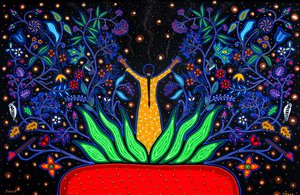The first Indian Act in Canada created an unfair relationship between the Canadian government and Indigenous peoples. Under the Act, Indigenous peoples were not recognized as independent or self-governed polities. In this video, CIGI expert Joshua Nichols considers Indigenous peoples’ self-governance alongside the Supreme Court of Canada’s decisions about the Province of Quebec’s request to leave Canada in the 1990s. The court viewed Quebec as a founding partner in Confederation and therefore, the rest of Canada could not ignore Quebec’s request. Indigenous peoples, however, are not regarded as founding members of Confederation. The United Nations Declaration on the Rights of Indigenous Peoples (UNDRIP), which the Canadian Government has said they support, makes clear the need for nations to rethink their legal systems with Indigenous peoples. If Canada is to move forward with UNDRIP implementation, then it must address the colonial heritage built into its constitutional order.
Indigenous Peoples Are Not Seen as Equals in Confederation; It’s Time to Fix That
Indigenous Peoples Are Not Seen as Equals in Confederation; It’s Time to Fix That
[JOSHUA NICHOLS]
Proper implementation of the UN Declaration would be to basically decolonize our constitutional order. It would be to move towards the possibility that always was present in our history, which was to treat Aboriginal peoples in Canada as founding constitutional members, and that their treaties with the government are honoured by making them founding members of Confederation. And that means treating them as self-governing polities within Canada not subject to provincial or federal law unilaterally.
We have it within our own constitutional order, in a certain sense, in the relationship between provinces and the federal government. While we do not refer to these as nations—they are governmental agencies that have laterally or somewhat hierarchical power arrangements between one another that are not automatic deference to. They are balanced out in the constitutional order. And the role of the courts in this relationship is to maintain the fairness of the laterality between the partners.
[PETER MANSBRIDGE]
Quebec cannot go it alone. But, given the right circumstances, it can indeed go. That is the unanimous opinion today of the Supreme Court of Canada. It was asked whether Quebec has the right, under Canadian or International law, to separate unilaterally from the rest of Canada. The answer: no. But, and it’s a big but, the court said, if a clear majority of Quebecers presented with a clear question, vote to separate, the rest of the country would have to negotiate.
[JOSHUA NICHOLS]
The court viewed Quebec, because it is a province, as a partner in Confederation and interpreted the relationship as implying a duty to negotiate. It would be illegitimate of Quebec to automatically leave just on the basis of a vote, but it would also be illegitimate of the rest of the partners of Confederation to ignore Quebec when it wanted to leave.
And so, they preserved a kind of lateral relationship between the parties that was reliant on the norm of consent. And yet in the same decision Aboriginal peoples are seen as an example
—a positive example—of Canada’s history with minorities, thereby ignoring the actual history with Aboriginal peoples in Canada that Aboriginal peoples are founding peoples in Confederation, much like Quebec. And the fact that they do not control a province, a recognized political structure within the country, does not remove that fact.
The starting place for Indigenous peoples and governments in Canada right now is to reinvestigate and put emphasis on what is the meaning of the current constitutional order. This is by no means news. This has been the struggle for a very long time. But it is to their advantage, in my mind, to look to the UN Declaration as a means of placing renewed emphasis on that very old struggle, and to try to, in a certain sense, leverage the arguments that are built within that document as a set of norms that move away from the colonial heritage of the Canadian constitutional order and how it’s built in. And give us means to critique and point to the problems in our constitutional order that have become hidden in plain sight, so taken for granted that they are necessary, that they are invisible to those who use them and benefit from them. And the UN Declaration is a kind of mechanism by which those parts that hide in plain sight become visible in a new way. And that visibility is useful because it can trigger people to reinvestigate the constitutional order and to change it. It is a living tree, and we can change it.
For media inquiries, usage rights or other questions please contact CIGI.
The opinions expressed in this article/multimedia are those of the author(s) and do not necessarily reflect the views of CIGI or its Board of Directors.


